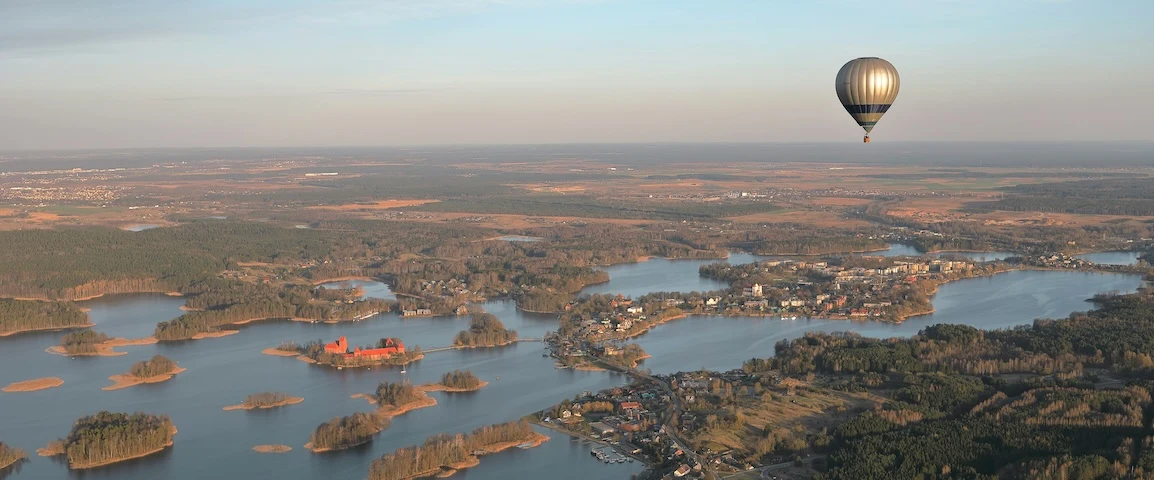Home > A Comprehensive Guide to Lithuania Long Stay Visas

A Comprehensive Guide to Lithuania Long Stay Visas
There are so many things to do if you're planning to head to Lithuania for an extended period of time. From learning about the city you're going to be staying in to figuring out what you're going to pack... There's also making sure you meet all of the legal requirements.
Needless to say, there are a lot of things to think about.
That's where we come in. We know that it can feel overwhelming to figure out the logistics of a long stay abroad.
In this guide, we're going to take a look at Lithuania long stay visas and residence permits. We will go over what a long stay visa is versus a residence permit, who needs one, and how to apply, giving you the information you need to get the ball rolling.

What is a Lithuania long stay visa?
Long stay visas allow foreigners to stay in specific countries for specific amounts of time. A Lithuania long stay visa allows its holder to spend more than 90 days (up to one year) in Lithuania.
There are different types of long stay visas depending on what the purpose of your trip to Lithuania is, such as for work or to join a family member who lives there.
You may see long stay visas referred to as national visas or visa D. While the terminology is different, they all refer to the same thing: a visa that lets you stay in Lithuania for longer than 90 days.
If you're hoping to stay in Lithuania for more than a year, you will need to apply for a residence permit.
Who needs a Lithuania long stay visa?
Whether or not you need a long stay visa for Lithuania depends on a couple of things.
If you are planning to spend more than 90 days in Lithuania AND are NOT a citizen of an EU/Schengen country, you most likely need a long stay visa for your trip.

How to apply for a Lithuania long stay visa
Applying for a long stay visa for Lithuania requires a few different steps, but the process is relatively straightforward.
We will list the steps here and then go into a little bit more detail in the following sections to give you a clear picture of what you will need to do.
- Determine the type of visa you need to apply for. There are several types of Lithuania long stay visas, and the one you need depends on why you're traveling there. We will talk more about the different types of Lithuanian visas later in this guide.
- Ensure you meet the visa requirements. Once you know which visa you need, it's time to review the requirements to make sure that you can meet them.
- Prepare your application. Your long stay visa application for Lithuania will consist of an application form as well as several required documents.
- Begin the application process online by filling out the official application form via the Lithuanian Migration Information System (MIGRIS). You will also need to upload digital copies of the requested documents.
- Book an in-person appointment. Once you submit your application electronically, you need to book an in-person appointment. This appointment is mandatory for long stay visa applications for Lithuania.
- Attend your appointment and make sure you bring all of the required documents in the requested formats, even though you've submitted them digitally.
According to the official Lithuanian migration website, you will receive an answer about your visa in 15 days, though in some cases that can extend to up to 45 days.

Types of Lithuania long stay visas
As mentioned above, there are several types of long stay visas for Lithuania. Categories include:
Lithuania long stay visas for workers.
- Researchers and teachers
- Seafarers
- Journalists
- Foreign professionals
- Seasonal workers
- Posted workers
- Volunteers
Students who wish to study abroad in Lithuania.
Athletes and coaches.
Foreigners seeking medical treatment.
Keep in mind that long stay visas are temporary. If you're looking to spend an indefinite amount of time in Lithuania and immigrate there, you will likely need to apply for a residence permit.

Lithuania long stay visa requirements
In order to apply, you will need to make sure that you meet the minimum requirements for a long stay visa.
While there is a general set of requirements that all applicants must meet, there are also specific requirements that change based on the specific visa type you're applying for.
Here are the general requirements:
- A valid passport that was issued in the last 10 years, has 2+ blank pages left, and will still be valid for an additional 3 months after your intended stay.
- Proof of health insurance that covers you in Lithuania and every other Schengen country too. Your coverage needs to provide a minimum of €30,000 in emergency medical costs.
- Proof of financial means. You need to prove that you have the financial resources to provide for yourself for the entire length of your visa. You must show proof of the minimum monthly wage in Lithuania. You can get this figure from Lithuania's official immigration site, as it changes from time to time.
Depending on which visa you're applying for, supporting documents will be required, such as work contracts or university acceptance letters.
